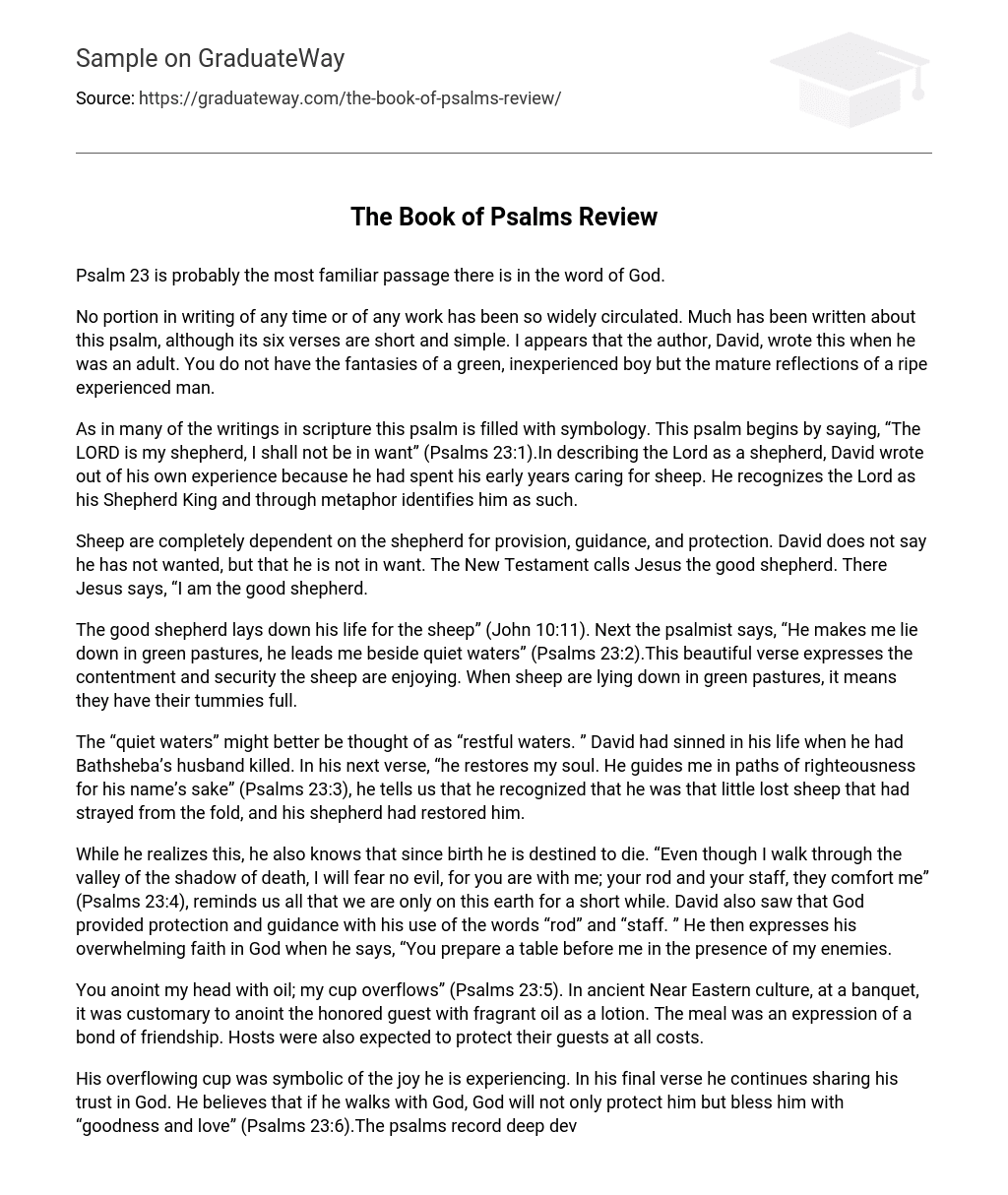The Bible’s most well-known passage is likely Psalm 23.
Throughout time, this psalm by David has been widely circulated in writing. Despite its brevity and simplicity, there has been extensive written analysis on it. The author seems to have penned it during adulthood, offering mature reflections based on a wealth of experiences rather than the imaginings of an inexperienced youth.
Like many other writings in scripture, this psalm is rich in symbolism. It starts by stating that the LORD is the writer’s shepherd and declares that the writer shall lack nothing (Psalms 23:1). By depicting the Lord as a shepherd, the writer, David, draws on his personal experience of tending to sheep. In doing so, he acknowledges the Lord as his Shepherd King and uses metaphor to describe him.
Both sheep and David acknowledge their reliance on the shepherd for food, direction, and safety. David expresses contentment with not lacking anything, while Jesus is referred to as the good shepherd in the New Testament and declares “I am the good shepherd.”
“The good shepherd lays down his life for the sheep” (John 10:11), and in Psalms 23:2, the psalmist says, “He makes me lie down in green pastures, he leads me beside quiet waters.” This verse portrays the peace and satisfaction experienced by the sheep when they lie down in green pastures, indicating that their hunger has been satisfied.
The “quiet waters” could be more accurately described as “restful waters.” David committed a sin by killing Bathsheba’s husband. In the next verse, “he restores my soul. He guides me in paths of righteousness for his name’s sake” (Psalms 23:3), David acknowledges that he was the lost sheep who had wandered away, and his shepherd had brought him back.
Despite being aware of his mortality, the speaker acknowledges that he is destined to die from the moment of his birth. The verse from Psalms 23:4, “Even though I walk through the valley of the shadow of death, I will fear no evil, for you are with me; your rod and your staff, they comfort me”, serves as a reminder that our time on this earth is limited. David also recognizes the protective and guiding nature of God when he uses the terms “rod” and “staff”. Furthermore, he demonstrates unwavering faith in God by proclaiming, “You prepare a table before me in the presence of my enemies.”
In Psalms 23:5, it states “You anoint my head with oil; my cup overflows.” This verse suggests that in ancient Near Eastern culture, it was common to anoint the esteemed visitor with scented oil as a moisturizer at a feast. Anointing symbolized a close friendship. Furthermore, hosts were responsible for ensuring their guests’ safety under any circumstances.
The overflowing cup symbolized the joy he felt, while in his last verse he expresses his unwavering trust in God. He firmly believes that remaining faithful to God will not only protect him from harm but also result in the abundance of “goodness and love” (Psalms 23:6). In general, the psalms document profound devotion, intense emotions, heightened sentiments, and solemn despair.
The psalm’s widespread recognition and remembrance among all denominations of Jews (both Orthodox and Reformed) and Christians is not surprising, as it has the power to captivate the human spirit in its entirety.
David led us to lush meadows, peaceful streams, and ultimately to God’s sanctuary. This psalm has brought immense joy to countless people throughout history. The book of Psalms serves as both a hymnbook and a testament to Him, and its captivating beauty has captivated the world.





